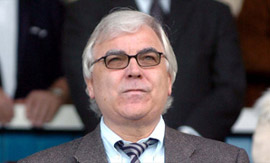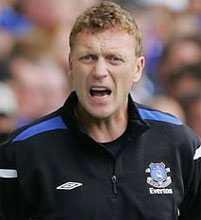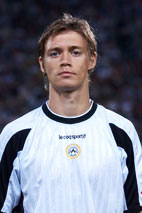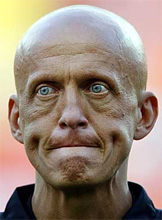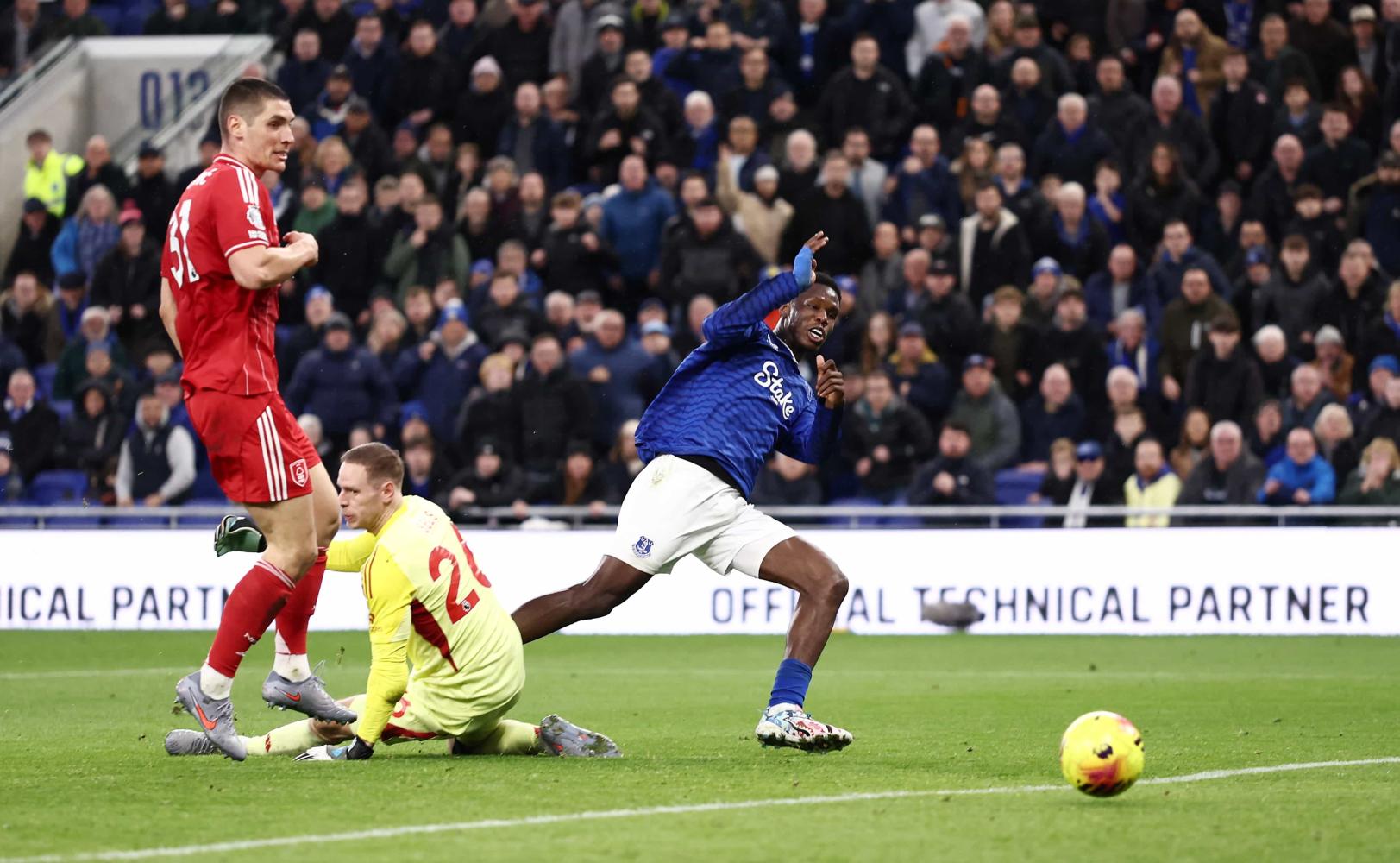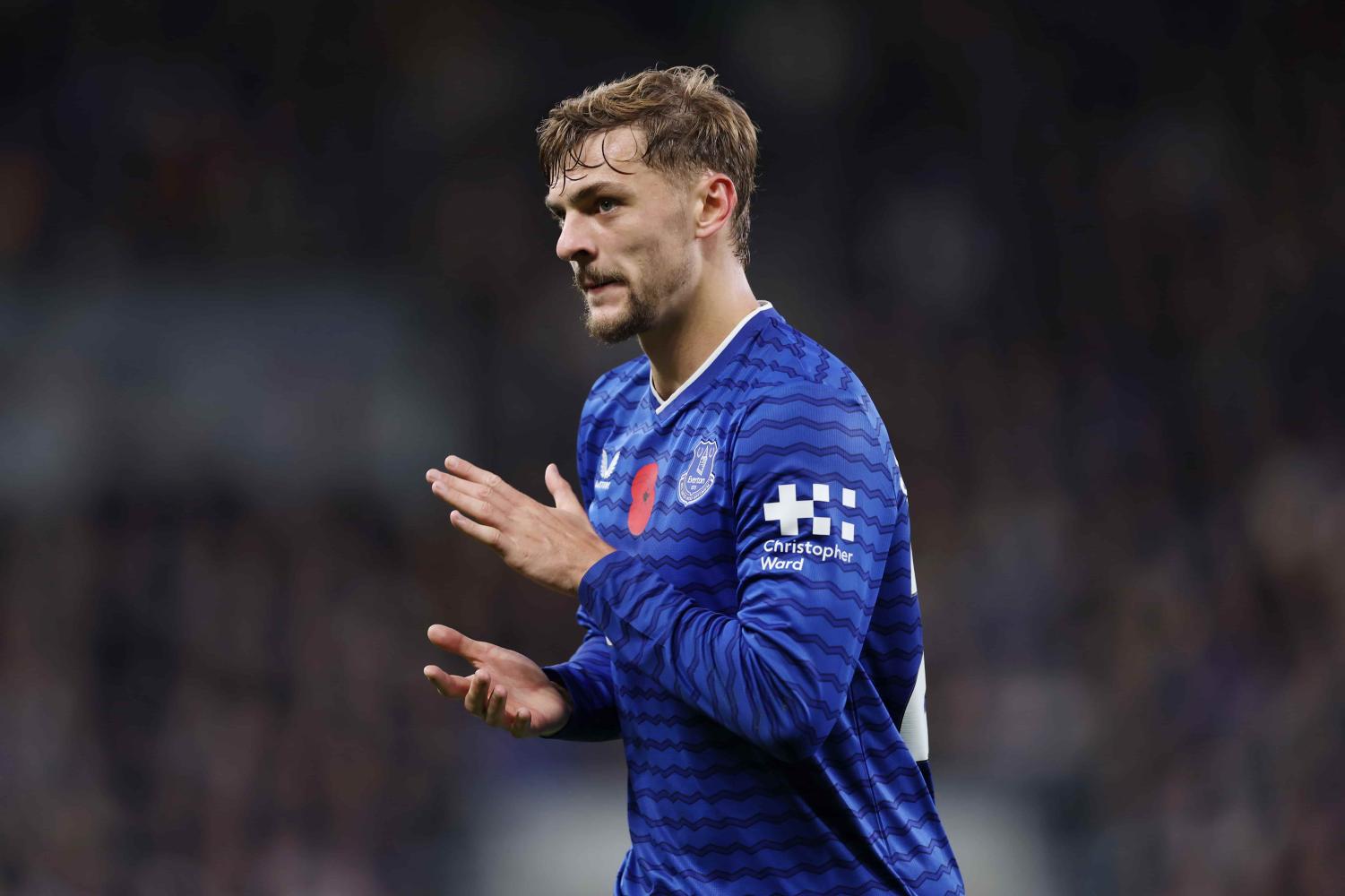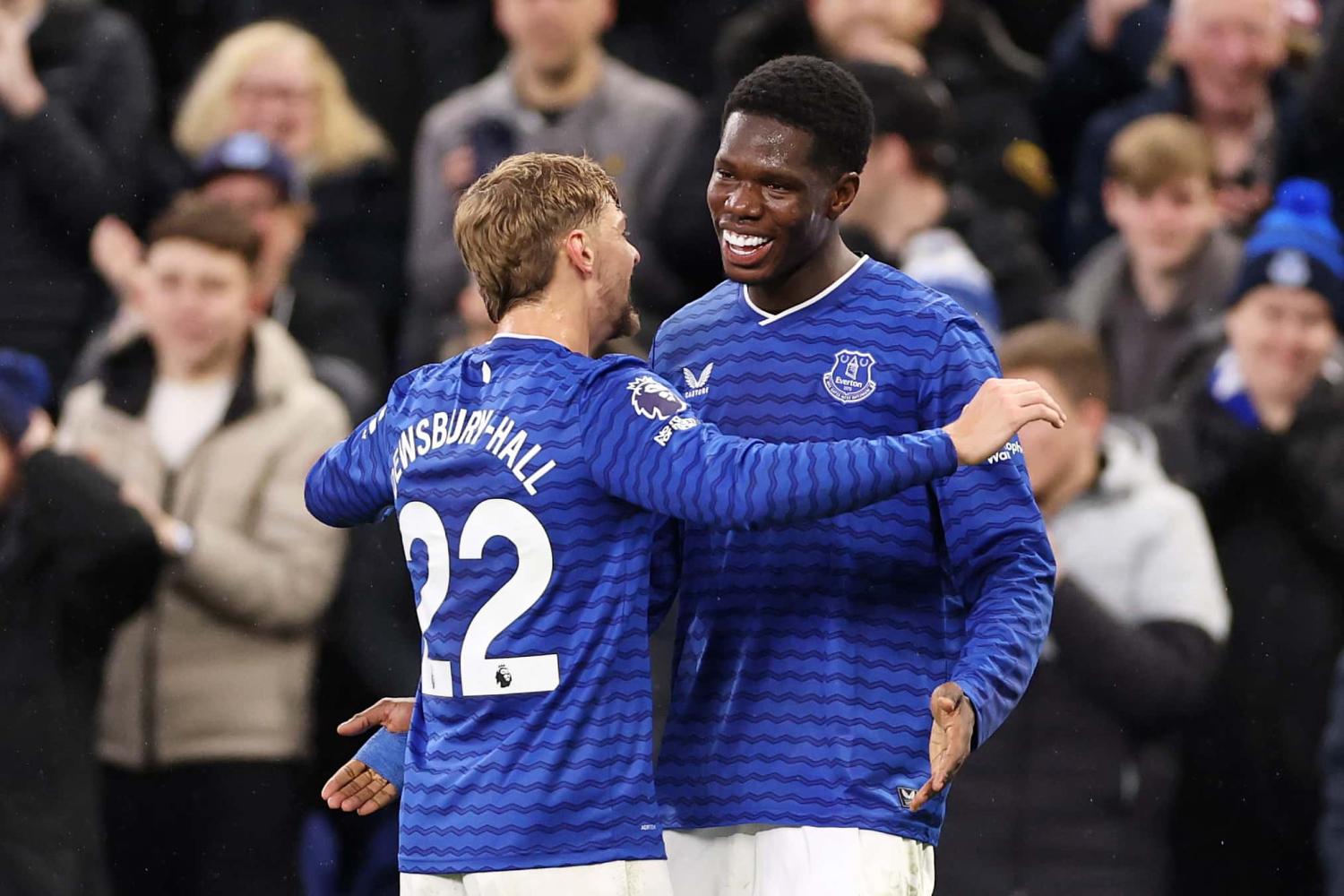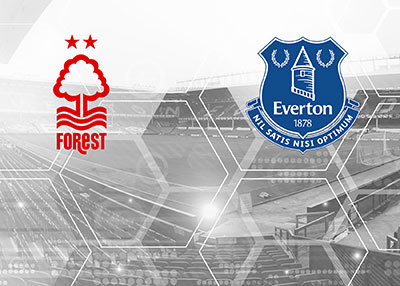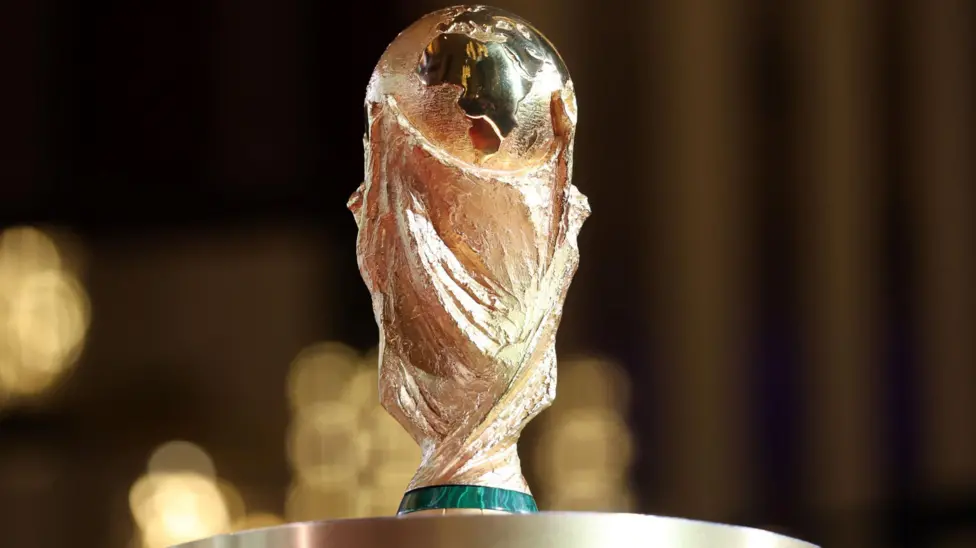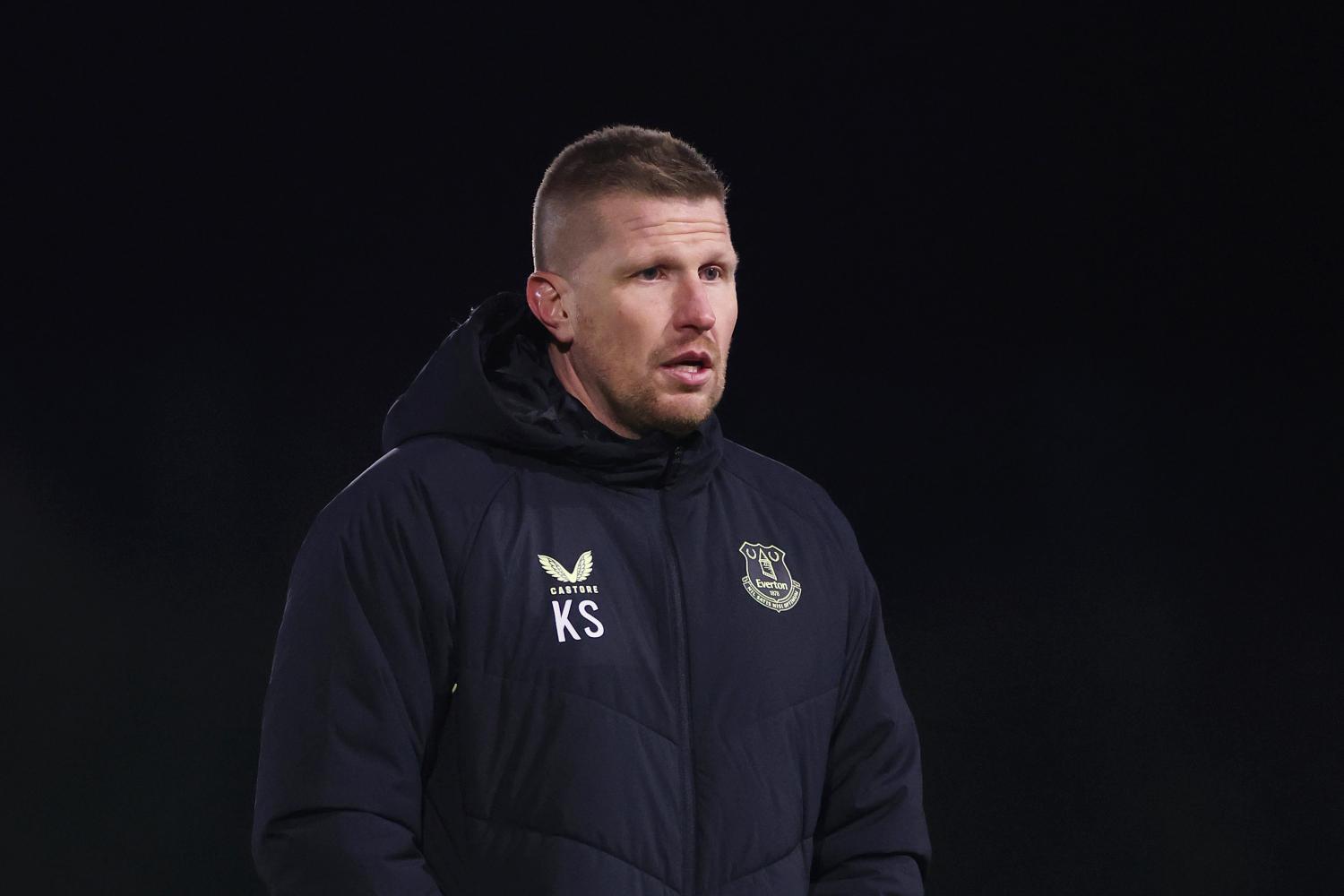|
View from the Blue
So Where Does the Blame Lie? While many people were sceptical of Everton's ability to either improve upon or match last season's unbelievably successful Premiership campaign, there can't have been many people beyond Alan Green who thought our season would start quite as catastrophically as it did. Our most recent poll here at ToffeeWeb attempted to gauge our readers' opinions on where the majority of the blame lies. We deliberately left out an "all of the above option" and, not surprisingly, the results showed a pretty even split between three main choices. What follows is a little analysis of these factors behind what has been a dreadful run of form since the turn of the year. Unsurprisingly, no one comes out unscathed... Lack of Investment — 9% A year ago, if you had asked fans who they thought was the biggest obstacle to the club's progress, many — probably the majority — would have said Bill Kenwright and the Board of Directors. I say "probably" because last summer, despite the Wayne Rooney controversy and boardroom in-fighting, there was a significant bloc of supporters for whom Kenwright could do no wrong.
ToffeeWeb was derided as being negative and acting contrary to the club's best interests in our no-holds-barred criticism of the boardroom face-off precipitated by Paul Gregg and prolonged unnecessarily by Kenwright's stonewalling, the murky dealings with regard to Rooney, the bald-faced lies that players would "absolutely definitely" be arriving before that August's transfer deadline, the refusal to seriously entertain the notion of a rights issue, and — not least — the abhorrent sham that was the Fortress Sports Fund deal. But the core issues still remain. Since taking control of the club, the current Board has injected nothing in the way of meaningful investment into a club desperate for economic transformation. Absolutely no progress on the stadium issue and no apparent plans for any until the very recent admission that the club can't go ahead with any redevelopment of Goodison Park until Liverpool's own stadium issue is decided. No outside investment and no apparent plans for any. Just crowing from the rooftops that the club had delivered record profits for the last fiscal year. It's true that things have improved greatly on the commercial side under Keith Wyness — you might argue they could only have got better — and that, in that regard, the club is moving forward. It shouldn't be forgotten, however, where the money for those "record profits" came from. Had Wayne Rooney not been sold, had David Moyes and his players not bailed the administration out by generating cash beyond any of their wildest dreams in the form of prize money and television revenue in 2004/05, and had Moyes somehow managed to land a Dirk Kuyt or Michael Owen in the summer, the club's financial returns would have looked infinitely less rosy. But despite the Board's continuing impotence when it comes to realising new investment in the club, the majority of the blame for the club's poor start to this season does not lie with Kenwright, Woods, Wyness and Gregg. Even if you admit that Everton punched above their weight last season and were highly fortunate to finish fourth, the least we should expect from this season is a top-half finish with the same squad of players. [I include the re-acquisition of Gary Naysmith, David Weir, Alessandro Pistone and Mikel Arteta here.] As it was, the Board made some £20M of the money Moyes had helped generate available to the manager for squad building this summer. Indeed, if anything, Kenwright should have done more to persuade Moyes to splash out on a striker before the revenue promised by a long campaign in Europe had evaporated almost immediately. Now, you could argue that the administration's failure to attract new investment or generate funds by opening up opportunities for share ownership to ordinary fans meant that Moyes did not have sufficient capital to buy much-needed reinforcements in the other areas of the field that he wasn't able to address — left, right back, central midfield, and up front. But the fact remains that we already had, at the very least, a squad of players capable of comfortably finishing in the top ten without the Board needing to spend a penny more on transfer fees beyond that paid to Real Sociedad for Arteta. Moyes's Tactics — 12%
The small number of people who selected this option surprises me; either people think that other factors are more to blame or they don't agree with the increasingly widely-held view that, along with the transfer market and man-management, tactical nous appears to be David Moyes's Achilles heel. The stubborn persistence with the five-man midfield last season, long after it had been found out by opposition teams and had become utterly ineffective, and his insistence on re-employing it over and over at the start of this season, betrayed in Moyes a lack of imagination and range. No one can argue with his passion for learning all levels of the game, as evidenced by his self-financed coaching courses and international trips to soak up foreign footballing methods, but he appears to have applied very little of what he must have learned when it comes to the Premiership. More perplexing, his overly defensive outlook for much of this season — being content to sit on a 2-0 reverse at Highbury earlier in the campaign, for example, was criminal — is in stark contrast to the exciting, offensive, go-for-broke mentality that he brought to Goodison when he first arrived. Since then, the timing and choice of his substitutions have often been highly suspect, his team selections (until very recently) overly negative, and the brand of football that his players are currently exhibiting is, for the most part, abysmal. A frustrating reliance on the long punt up front — be it from Martyn, Weir, Yobo, Hibbert or the left back du jour — coupled with most moves being channeled straight down the middle instead of using width and movement to open up defences means that Everton have been predictable and one-dimensional this season. Worst of all, they seem to have no clue how to hold onto the ball, which is perhaps the number one reason why, when an opposition team is in full flow or the Blues's defence is off its game, we end up getting hammered by large scorelines like the one we suffered at The Hawthorns the other weekend. The victory against Newcastle indicated a massive improvement in all departments, including the manager's strategic acumen, but one swallow doesn't make a summer. The next few games will be crucial in determining whether things really have changed for the better and the club as a whole doesn't require regular shock treatment like the WBA debacle to bring out a good performance every now and then. Quite apart from the detrimental effect on the team's ability to win matches, a lack of tactical acumen doesn't inspire respect for the manager from the players, and if, as rumours before the Lake District getaway suggested, Moyes again "lost the dressing room" earlier this season, that might explain plenty. For me, the most obvious sign that the management team's basic strategy is off-kilter is the fact that a 33-year-old Duncan Ferguson is seen as our biggest goal threat and yet we do nothing to play to that strength. Our wide players — full-backs and midfielders — make it to the byline perhaps a couple of times per game when, with Beattie and Ferguson up front, getting into those positions and supplying that sort of service should be central to the gameplan. Let's see if the Newcastle win sets a new course that the manager will follow in the crucial run up to the New Year. Injuries — 17% No one can deny that Everton have suffered badly from injuries this season, not only to players they signed over the summer (Krøldrup and Valente, especially), but also to existing players like Pistone, Naysmith, Carsley and, in particular, Vaughan and Beattie. It has meant that David Moyes probably hasn't been able to field his first-choice line-up on any occasion so far this season.
Nevertheless, the fact that the manager has used the fewest number of players than any other Premiership manager so far would seem to suggest that he had settled on a core group of players to work with and that, through continuity alone, he should have been able to establish a settled enough system, strategy and basic line-up drawn from those fit players to avoid the kind of start we've had to endure to a season that held so much promise. The reality has been quite different; Everton have been consistent... consistently awful, and only over the past four games have there been signs that that pattern is changing. Their only win prior to the victory at Birmingham (the 1-0 victory at Bolton) was achieved under such fortuitous circumstances that it's still embarrassing to look back on it. The Blues had one shot on goal in the entire 90 minutes at The Reebok and scored. It takes a special brand of awfulness to manage just one shot on goal in an hour and a half of football but Everton were that bad at the start of this season. And two of the three wins that have come since were themselves largely unconvincing; here again the performance against Newcastle breaks the pattern and offers more hope for the remainder of the campaign. In our desire to be seen to be backing the players and giving them our undying support to push us out of a relegation dogfight this season, we've convinced ourselves that the Blues have been playing better than they have been. The reality is that, despite Andy van der Meyde's introduction, the return to better form by Tim Cahill, Mikel Arteta's sterling contributions playing wide right, and Beattie finally stringing more than two starts together, the Blues have managed to grind out results relying mainly on sheer effort and determination not to lose — both finite qualities. Yes, Van der Meyde remains well short of match fitness and we probably won't see the best of him for another couple of months. Yes, we have had a crisis at left back and have been forced to rely on Phil Neville who has been poor in that position. Yes, Beattie's erratic fitness and Vaughan's lengthy absence have restricted options up front. But none of those factors take away from the basic fact that, on balance, we have been playing atrocious football with which we create far too few chances and give the ball away far too cheaply. And we've been doing it since the turn of the year, a time when we were blessed by the footballing gods as far as injuries were concerned. Bad Luck — 20%
There is a saying in football that you make your own luck and I, for one, am a firm believer in the dictum. With the right preparation, the right attitude and the right tactics, you can greatly improve your chances of turning luck onto your side. Everton's abortive Champions League qualifying campaign, the one that left us cursing Collina for denying us passage to the group stages, was a case in point. By not having a genuine goalscorer in place before the start of the vital third qualifying round tie against Villarreal, David Moyes severely handicapped his team's chances of advancing past a highly organised and talented team. The result was a game of aerial bombardment at Goodison Park that attempted to beat the Spaniards into submission. In the reverse fixture, Moyes's side defended deeply for 60 minutes, despite going a further goal in arrears on aggregate midway through the first half, choosing to attack only in the last half an hour. Perversely, it almost worked; we had Villarreal on the ropes on their own turf in the closing stages but had left ourselves too little time to inflict the necessary damage to win the tie. Moyes's strategy was clear but carried enormous risk. However, it was the referee and not the general gameplan that was blamed for our defeat. It shouldn't be forgotten that, had Collina allowed Duncan Ferguson's header to stand, we would only have been level across the two legs and who knows what our opponents' response would have been in extra time. Probably the same as that feared by Moyes had his team played on the offensive from the moment they went behind. The argument over preparation in the context of Everton's transfer policy this summer comes into play again with regard to the club's abysmal start to the season; the failure to sign a striker — even after the desperate need for one was highlighted by our exit from the Champions League reckoning — was the decisive factor behind our miserable record over the first dozen games. Four goals in 12 matches wasn't just the worst goalscoring record in the country, it was the worst in Europe! So, laying the majority of the blame at the door of lady luck is, to these eyes, overlooking a slew of missed chances on the part of Everton to make their own luck and have greater control over their own destiny. Moyes's Transfer Dealings — 20% One of the biggest criticisms leveled at David Moyes by fans of Preston North End when he left Deepdale in 2002 was that he struggled when it came to higher-end dealings in the transfer market. In other words, he has a great eye for the kind of player who can be bought on the cheap and "do a job" to get you over the hump in the short term, but has problems either identifying or landing higher calibre players of the standard at which Everton were looking this past summer. That argument seems to go both ways. Moyes's first signing was Joseph Yobo who, despite his critics, is an awesome player and one of the Blues' most consistent performers. He was signed initially on loan for £1M at time when, apparently — at least according to Bill Kenwright — you didn't need £5M to sign a £5M player — and when there were plenty of other far better teams interested in his services. It was a clever piece of business, one of Moyes's best transactions as Everton manager. Nigel Martyn and Mikel Arteta, despite being acquired during a deadline-day panics, are also candidates for Moyes's best piece of business, and Tim Cahill has rightly been cited as the biggest factor behind last season's amazing fourth-placed finish. And then there is Andy van der Meyde who, if he can achieve and maintain full fitness, could prove to be an absolute steal and fully justify the manager's year-long chase for his signature. Moyes has also been adept at spotting bargain buys to pad out the squad when he hasn't had a large budget with which to work. Kevin Kilbane paid back his £1.1M transfer fee with an impressive first season at Goodison; Marcus Bent proved great value for money with his contribution to last season.
Unfortunately, Moyes has had his fair share of bad signings as well, particularly at the upper end of the market. I don't think it is too early to say that £6M for James Beattie was a very poor piece of business, especially since the club failed to find the right partner for him over the summer and can't seem to play to his strengths with the personnel at Moyes's disposal. And when they do, he routinely misses good chances, a situation that, we must hope, may improve as his confidence grows in tandem with that of the team. Richard Wright cost £4.5M but after a reasonable start to his Everton career has degenerated into a worrying liability and is now surplus to requirements. Simon Davies could end up costing Everton the same amount but thus far he hasn't offered much more than we already had in Leon Osman who cost nothing. Phil Neville was probably bought for £1.5M more than he has been worth. Then there is Per Krøldrup, the most expensive acquisition of the summer who, rumour has it, signed without really talking to Moyes and with a pre-existing groin complaint that required surgery in the pre-season and kept him out of first-team contention until October. To this date, kept on the bench by a 35-year-old Weir, the Dane has yet to make a first-team appearance, and Moyes's admission that he is still not convinced of his fitness merely strengthens rumours that he has pelvic problems. Time will, of course, tell if he will be a £5M flop. If there were doubts over Moyes's abilities in the transfer market, they were reinforced this summer when a succession of transfer targets failed. Some failed medicals. Mikael Forssell was on the verge of signing but the club's medical staff had grave concerns over the condition of his knee. He eventually signed for Birmingham where he has played plenty of games but failed to score goals; so, either Everton were right and his knee is shot, or he isn't really that good anyway and we should never have been in for him in the first place. Some were too expensive. Dirk Kuyt (not that he would have come to Everton anyway) was not deemed worthy of an additional £2M on top of a rejected £10M offer; the club rightly balked at £5M for Preston's young and untried marksman David Nugent; Moyes didn't fancy paying Liverpool's asking price for Milan Baros or the wage demands of Darius Vassell; and Spurs apparently wanted upwards of £7M for Robbie Keane (rumour has it a deal was agreed and the transfer was scuppered by other factors). Some refused to come. Craig Bellamy was all set to join until he was, apparently, turned off by his final interview with Moyes; Emre wanted far more than Everton were prepared to offer but got it at Newcastle; Michael Owen opted to join England team-mate Alan Shearer at St James Park; and Scott Parker had agreed personal terms but called off his move from Chelsea when Moyes refused to pay an extra £1M to his agent. And some, like Mohamed Sissoko, were poached by other clubs because Everton were too slow to lock them in to a deal. But the manager's single biggest failing was not signing another striker, first before the start of the Champions League campaign, and then by the August 31st transfer deadline. As you can see above, it was certainly a priority of his but ultimately he hedged his bets over CL qualification and was far too complacent about the ability of Bent, Beattie, and Ferguson to carry him through to January once he had decided he wasn't going to get his man before the closure of the transfer window. Many readers of this site were mystified by my empassioned lament on this subject in my last column to the point where I wondered if I was being overly critical of both Moyes and the strikers he already had. But the point was that it was clear that we needed a particular type of striker, one with pace, to radically change our shape going forward; a player with speed, movement and the ability to pull defenders all over the place and create the kind of openings for the midfield that were so obviously — to me at least — lacking in our early games this season (the Villarreal ties, the Premiership opener against Manchester United, etc). Our disastrous start has vindicated my deep fears that we wouldn't have the firepower to succeed in Europe, and while I could never have foreseen a start to the season as miserable as this, in hindsight I'm not surprised that we're not scoring goals. Without goals, you can't win matches and since the turn of the year, Everton have played 30 matches and scored 26 goals. Any team that scores fewer goals than matches played, a hallmark of relegated sides, is in serious trouble and despite all the mitigating factors, the failure to sign a striker of any description this summer must go down as Moyes's most serious and potentially costly error. The Players — 22% When Everton finished the 2003/04 campaign in 17th with the lowest points haul in the club's history, it was the Board and the players who bore the brunt of the fans' fury, especially following the 5-1 capitulation at Manchester City on the final day of that season. In a famous article in the Echo, David Prentice drew the anger of the squad when he said they were "taking the piss", not worthy of the Royal Blue jersey or their exorbitant wages. Two seasons on and there is a bit more context to that worst-ever top-flight season. Rumour was rife then as it has been this campaign that Moyes had lost the players but at the time the manager had the full support of the players. His ambition and no-nonsense approach had been a breath of a fresh air at a club beset by years of mis-management, decline and complacency of its place among the game's elite. If the players were bucking at his emphasis on fitness and discipline, it was because they were lazy and didn't share his high ideals and goals. Now, as the evidence mounts that Moyes may not be the Messianic world-beater we set him up to be, there is perhaps a growing understanding that it's not all down to a lack of application and heart by the players. But the attitude of the players has certainly been a major factor in our poor start to the season. By their own admission, they had the wind and confidence knocked out of them by the manner of their elimination from the Champions League at the hands of Pierluigi Collina. And once they had been unceremoniously dumped out of the Uefa Cup, it is perhaps understandable — from a human if not professional perspective — that they lost a degree of motivation having seen their European dreams disappear so quickly. Of course, they are professionals; while the club's swift exit from the European stage was down to their own shortcomings, the Premiership season had just begun. It took a clear-the-air getaway to the Lake District and then a hefty kick up the backside from West Brom for them to find an answer to their lack of unity and motivation and respond to the fans' increasing desperation at Everton's position at the foot of the Premiership. The level of commitment may have risen sharply but the standard of football hasn't seen the same level of improvement, which is where you get into the grey area of where the manager's responsibility for the standard of football played on the pitch ends and that of the players begins. Is the squad getting things right on the training pitch only for it all the break down when the real action starts? Or is there just a general lack of direction, cohesion and strategy from the managerial team? Hard to know, but there is clearly a big problem somewhere, and the team's almost suicidal inability to keep the ball is not all the fault of the manager. Conclusion While the accuracy of the poll numbers can't be verified, the results are probably representative of the feelings of our readers, and it's interesting to see very even numbers laying the majority of the blame for this season's calamitous start at the door of the players, the manager's tactics and plain old bad luck. There's plenty to ruminate on here: Are the fans apportioning most blame to the players because Moyes's stock is so high after last season's achievements? Or do they feel that it was both the players and the manager's tactics that achieved the miracle of 2004-05 and that their collective failure — doused with a heavy dose of misfortune — is what lies behind this season's disaster? Certainly, as shown by our previous poll where three-quarters of respondents said that Moyes should not be sacked, the manager has retained the faith of a large bloc of the supporter base and there was outright indignation from some quarters when we dared even question whether the manager's time was up. He has, after all, guided the Blues to two top-10 finishes and qualified for the European Champions League with the club's highest finish in the Premiership. That, despite the spectacular collapse in form since his team secured that fourth spot, is probably the overriding reason why he still had a job despite Everton crashing out of the Champions League qualifiers, the Uefa Cup and the Carling Cup at the first hurdle, and sitting bottom of the Premiership with just one league goal scored from open play in 10 hours of football by the time the home draw with Chelsea came around. Those achievements set him apart from every Everton manager since Howard Kendall I but so do the record low points tally of two seasons ago, this season's worst ever start to a campaign, and the club's record defeat in Europe. Let's not also forget how perilously close we just came to setting a club-record seven consecutive league defeats. And in the same way that Moyes's staunch defenders claim that no Manager of the Year becomes a bad manager overnight — he's just unlucky — does a bad manager become a good manager in the same time-frame, perhaps on the back of very good luck? Or is it that his greatest managerial attribute is one of the most ephemeral of them all; namely, the ability to motivate? Time will tell. Few can argue that, on paper and despite some questionable acquisitions, Moyes has assembled the best squad of players at Goodison Park for a decade at least. Despite doing little to create funds for the manager to spend, the Board has at least made the fruits of his labour available to him so far for squad building. The crunch may come in January, however, when Moyes goes to splash out desperately-needed striking reinforcements only to be told the cupboard is bare because the club's custodians banked on a longer run in Europe. While injuries and bad luck — the two often go hand-in-hand — were undoubtedly a factor, it would be naïve to put the majority of the blame for our troubles this season on either factor, especially when the hardest-hit and most ineffective part of the squad, attack, was the same part that needed to be addressed with solid acquisitions over the summer anyway. To these eyes, the biggest factors behind Everton's early-season collapse were the failure to sign a striker (or strikers) over the summer, the attitude of the players, and tactics. Of course, all of those roads ultimately lead to the manager and I have to be completely honest and say that throughout the drafting process of this article (it's been two months in the making!) my views on whether or not Moyes is the man for the Everton job have oscillated quite a bit. When we posed the "should Moyes be sacked" poll, I was firmly of the opinion that despite his transfer dithering and the wasted opportunities provided by European competition, he deserved the opportunity to put right the mess he had partially created. In the aftermath of the West Brom humiliation, I had come around to the view that perhaps he was out of his depth and that Moyes might not be the man for the job over the long term. Then came the game against Newcastle, a match that, like the draw with Chelsea (to date one of only two games where the runaway Champions have dropped points this season) before it, proved — as if that were necessary — that Everton can be much better than their position in the relegation zone suggested. Whereas on many occasions Moyes hasn't looked like he knew what to do next when trying to avoid an imminent defeat, he appeared to get everything right on Sunday, the players responded in kind and, with better finishing, the Blues could have won comfortably. The key, of course, is to maintain that level of form and put together a run of form that will both distance us from the relegation dogfight and improve our prospects of landing much-needed striking reinforcements in January. For the manager to restore the faith of those who either recently jumped off the IMWT bandwagon — or were never really on it to start with — his team need to string together a run of performances and results that prove that he is more than a periodic catalyst of harsh words or motivational getaways to rebuild squad morale. Everton need to establish a brand of football that goes beyond the hit-and-hope style that has dogged much of the campaign so far, re-learn how to pass the ball better and keep possession. Then, and only then, can we hope to return to the right half of the table and begin to fully trust the manager who could do very little wrong a year ago. Addendum Lyndon Lloyd Reader Responses Any responses will appear here
|

